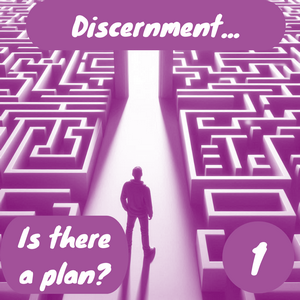Craig
I came to faith at an early stage in my life when things were a struggle on many fronts. I therefore adopted some pretty naive assumptions about God in those early years but, probably because they provided the security I needed, they seemed to serve me pretty well. I also carried over the teenage performance equations from my upbringing: if I am good God will reward me; if I can improve myself God will be extra pleased. Sadly these unchallenged equations were evident in the early stages of my church leadership – and I’m sure many viewed their young minister warily, such was my willingness to turn to the empty church growth techniques I’d been taught in the belief that they would grow the congregation. More people = success = a happy god.
There’s a pharisee lurking behind a mask in all but the most self-aware. If I perform well enough, I will be doing God’s will and pleasing/serving/honouring God better. I bolstered my faith in this equation with a pretty naive assumption that somehow I was doing God’s will, either because I am on his side, or he is on mine. But the sad thing is that all false beliefs about the character or will of God will translate themselves into behaviours which those who are watching our performance will find confusing. This is what we are currently seeing within populist movements which are wrapping nationalist language and goals in religious clothing. If we fall for the sham, all we are doing is co-opting talk of god into our own agenda. My will, not Your will be done.
I think the theological structure I was immersed in attempted to mitigate this problem by making a distinction between God’s perfect and permissive will – there will be times we get it right and times we try to do what might be the right thing in the wrong way. But this carries with it images of an almost inevitable second-bestness to everything we attempt. I can’t help engaging mental pictures of God unfolding his grand map and getting out a black marker pen to change ‘Plan A’ into ‘Plan B’ with a shrug of the shoulder or a knowing look whenever I miss the mark.
I prefer these days to try and imagine a God who has no map and no marker pens. I see myself as discerning a call, or a drive, to co-operate with a God who may be taking a love risk, entrusting people like me with glimpses of what could be – knowing I might crush the reality once I have grasped it, but also aware I’ll pick myself up and reach out again if (when!) I mess up because the glimpse I had of God’s intended future was life-transforming.
Dave
I want to begin with a few thoughts that have steered my thinking in this area from my teenage years.
Back in the day, the idea of discernment was often expressed as guidance…being guided by God, who had a plan for your life and was invested in helping you to make the right choices to live out that life. A writer who laid some helpful foundations for me was John White, a psychiatrist and a Christian, in his book “The Fight” (IVP, Leicester 1977).
Firstly, while we may be seeking guidance, God wants us to have something better…a guide.
The LORD says, “I will guide you along the best pathway for your life. I will advise you and watch over you. (Psalm 32:8 NLT).
God wants to build a deep relationship with us, so that we recognise God’s voice and trust the guidance. (I know…it’s not always that simple!). However, spending time with God, not churning out shopping list prayers but listening in solitude and silence and spending time with other followers of Jesus (including those who are different to us) helps build the relationship.
Secondly, I prefer to think of God having a goal, rather than a plan…God has an overall goal for your life. However, this goal has little to do with vocation, geography, relationships and all the other things we need to make choices about. These things may well be part of our journey towards the ultimate goal, but they’re not the goal itself.
The goal is that we become more and more like Jesus…White calls it a moral goal but I prefer to think it’s a transformational goal. What’s more, the Holy Spirit is busy working in us to help us in that transformation:
But when the Father sends the Advocate as my representative – that is, the Holy Spirit – he will teach you everything and will remind you of everything I have told you. John 14:26 NLT
God can never be fully known; there will always be an element of mystery in our relationship. We may get better at recognising God’s agency in our decision making process. As a result, our trust may grow as we gain an appreciation that God has our best interests at heart.
Some may say that being dependent on God in our decision making means we are perpetually childlike, unable to make decisions for ourselves. It seems to me that if we are intended to live in partnership and relationship with the maker of the Universe, that dependency (trust might be a better word) is wholly appropriate, if not a no-brainer! I don’t, however, see dependency as passive acceptance or a way to avoid personal responsibility. I believe that having a relationship with God is a two-way street, with God actively encouraging our participation in our choices and trusting us to love him enough to want what he wants (which is our transformation into the likeness of Jesus).


